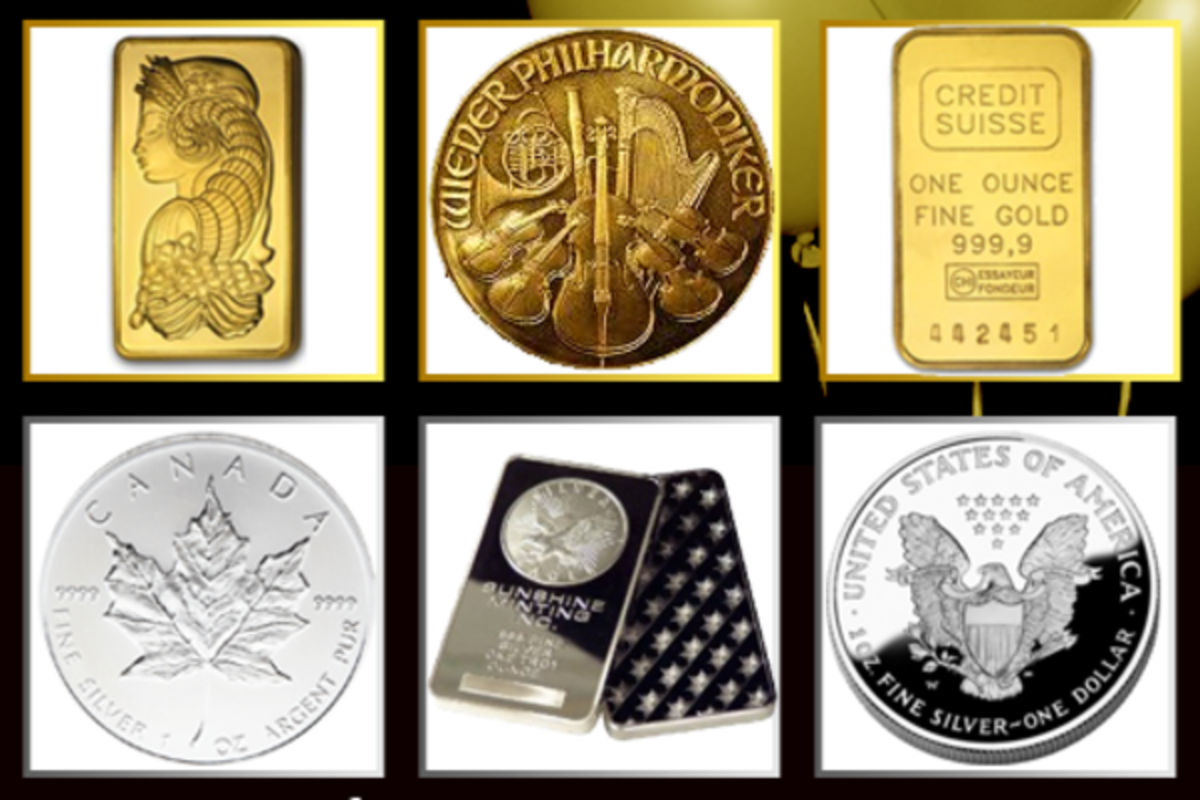
Disclaimer: Bitcoin Magazine has previously run advertisements for Coinabul. This article was written independently of this fact. -Ed.
Coinabul, Bitcoin’s largest gold and silver selling service, has announced that is holding a sale to mark an important milestone in its history: one successful year of operation. Jay Shore and Jon Holmquist, both self described “metal-bugs”, had started the business to help the Bitcoin community convert their bitcoins into precious metals in October 2011, and after a month of hard work, the business began to quickly take off. On December 3, the site saw a volume of over 1,000 BTC, and since then, has been seeing consistently higher volumes every month. The site passed 6,000 BTC in April, and, as of its first anniversary, Jon Holmquist has announced that the site has transacted a total of over 120,000 BTC.
Surprisingly, the main driving force behind Coinabul’s success is not its Bitcoin acceptance – rather, it’s the service’s ease of use. Coinabul’s web page proudly claims that Coinabul is known industry wide – not the Bitcoin community, Jon Holmquist clarifies, but the precious metals industry as a whole – for its speed and reliability. The task of claiming such a trophy turned out to be rather easy for a Bitcoin business for two reasons. First, as Holmquist writes, “conventional gold dealers are terrible at building websites.” Gold buyers are traditionally thought of as being an older and more conservative demographic, but the Bitcoin community is one of the few places where an interest in precious metals and internet technology intersect. Second, Bitcoin’s claims of being easier to work with for merchants than traditional systems are hardly exaggerated; Holmquist adds: “Not even a week ago I was trying to use APMEX’s shopping cart and I couldn’t even finish the transaction due to what I think were expired SSL certificates.”
Coinabul has expanded considerably since its last semi-anniversary event six months ago. Aside from its massive increase in trade volume, the business has continued to add features to the website and make it easier to use. The most notable new feature that Coinabul has added since then is an API which allows computer programs to purchase gold and silver automatically. Two possible use cases for this feature come to mind. First, one can use it to make limit orders and stop losses of gold or silver, converting a given supply of bitcoins into precious metals when the price hits a certain value. Second, one can connect the API to a merchant platform, so that a business can convert its revenues into gold and silver immediately and automatically. Shipping is now available worldwide, with sales tax exemptions in Canada and the EU. The process has become fairly efficient; gold and silver typically makes its way to the customer in under a week, and although shipments are sometimes hindered by customs officials suspicious about BTC-denominated invoices rapid delivery is the norm. Shipping costs are typically about 2% of the products’ value, including insurance, and so far, there has only been one serious incident relating to shipping, which the shipping insurance happily covered.
In some areas, Coinabul has encountered roadblocks. Almost since the site’s inception, its founders have been toying with the idea of allowing users to buy virtual gold and silver holdings that would remain stored under Coinabul’s control. However, although the idea has not been abandoned, progress has been slow. “It’s a very hard legal challenge,” Homlquist explains, “We’ve had some progress, but nothing to announce yet.” Coinabul’s difficulties are understandable; introducing gold storage as an add-on may seem like a simple matter of combining one product with another, but it also means that the business would be acting as a financial service, and not just a merchant as they are currently.
Shipping is another area Coinabul is still struggling to improve. Although Coinabul’s shipping has become considerably faster over the past six months and continues to do so, Shore and Homlquist had been planning to achieve a turnaround time of 24 hours worldwide for months – a figure which has, so far, proven elusive. Costs too have been a problem, as shipping costs have risen from under 2% to about 2.4% in the past few months. “We’re a small company,” Homlquist explains, “so we can’t negotiate like the big guys can.” However, the pair is confident that these and other problems can be resolved. Coinabul has already added some new employees, and will continue incrementally improving its infrastructure as it gains the scale and ability to do so.
Six months ago, Coinabul was also eager to start working with MintChip, the Royal Canadian Mint’s foray into digital money. “This should ease the barrier-to-entry for our less tech savvy potential clients, as well as appeal to the gold-bugs being turned on, for the first time, to digitized payments via the Canadian Mint,” Holmquist had claimed. Now, Homlquist reports, for the time being the MintChip project has been shelved. “We don’t see MintChip as expanding in the future,” Holmquist explains, although he adds “but on the off-chance that it does, we’ll accept it as payment.”
Coinabul’s anniversary sale offers $12 per ounce off gold purchases and $1.5 per ounce off silver – roughly 0.67% and 4.5% off the average cost of each one, respectively. After the sale, Coinabul’s founders are also organizing another event: Bitcoin Merchant Friday. Celebrating the second anniversary of the day the Bitcoin project was first registered on SourceForge, a number of prominent Bitcoin merchants, including Coinabul itself, will be holding sales on Friday, November 9. As for Coinabul’s business, their main target in the next twelve months is the USD market; although Coinabul has been growing quickly, Holmquist believes that the business will be able to do much more once it gains a significant foothold selling gold for US dollars as well. But, even if Coinabul becomes a mainstream trader of gold for USD, they do not intend to abandon their roots. “We built Coinabul around Bitcoin, Homlquist writes, “and I feel like Bitcoin has been growing around us too. Bitcoin has given us a solid foundation, solid roots, so now we’re actively exploring ways to enter the bigger market by transacting in USD. Hopefully we’ll be able to offer enough of a discount for clients using Bitcoin that USD customers will adopt!” As for Coinabul’s past, Holmquist is happy about the progress that his and Jay Shore’s business has made. “First month sucked,” he writes, “Second month was okay. Rest of it was a joy! We’ve had our fair share of issues, but we’ve sorted through them. The community has really supported us and we hope they continue to do so!”










